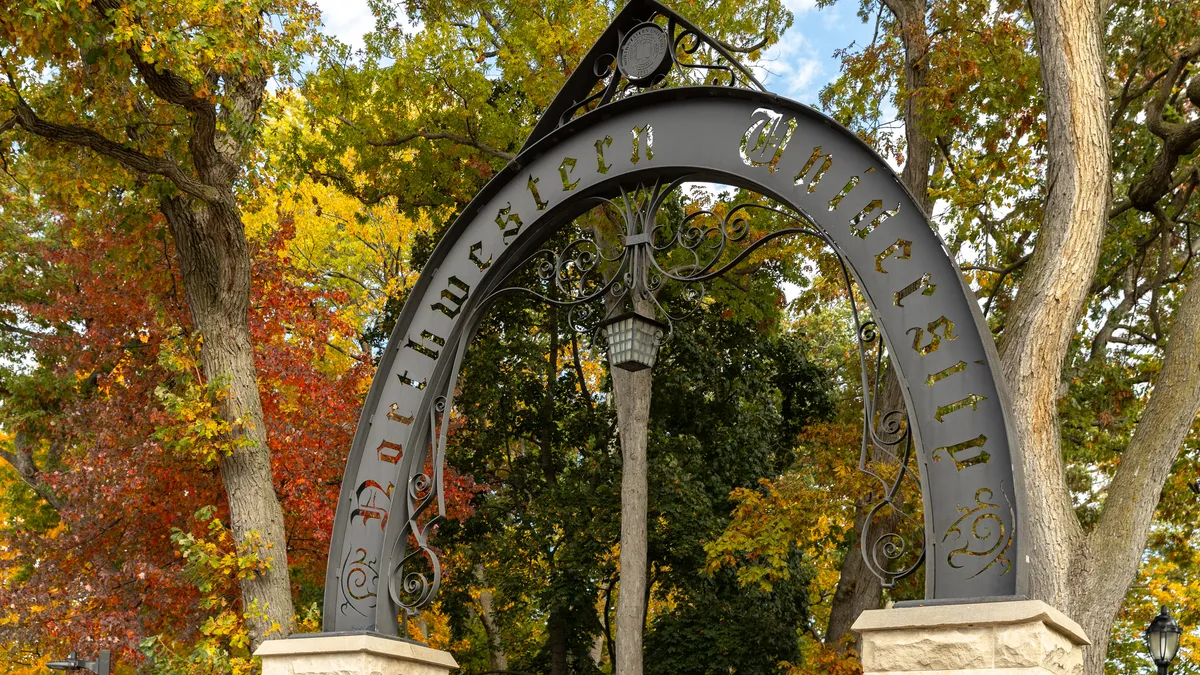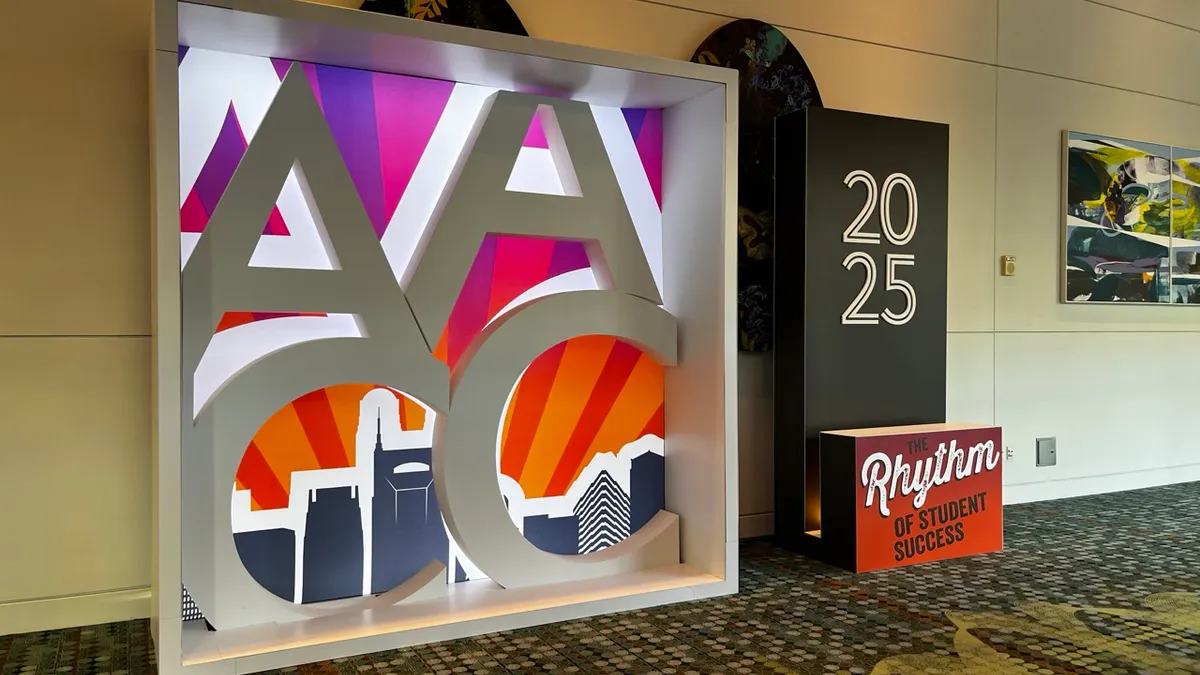Income-share agreements are at a legal crossroads after regulators put a stake in the ground saying ISAs are loans.
The federal Consumer Financial Protection Bureau said Sept. 7 that it issued a consent order against Better Future Forward, a Virginia-based nonprofit that issues ISAs. The CFPB is requiring Better Future Forward to provide disclosures required under federal consumer financial law, to change the way it calculates payment caps to avoid prepayment penalties, and to stop saying its ISAs aren't loans.
Those specifics are important, but they may be incidental for the ISA sector compared to the enforcement direction the CFPB is signaling. Its acting director, Dave Uejio, said in a statement recently that "The ISA industry cannot pretend that core consumer protection laws do not apply to their products."
ISAs arguably contain elements of several different types of financial products: loans, insurance and equity. They provide money to help students cover expenses like tuition and fees, and in return those students agree to pay a percentage of their post-graduation earnings over a contract term. They can be designed so students don't have to pay unless they earn a certain amount, and they can include a cap on lifetime payments.
Whether an ISA amounts to a loan might sound like an academic debate, but it's a debate with a significant impact on which laws apply to ISAs. And the regulatory framework matters if ISAs are to grow as a source of funding for students seeking college degrees or credentials.
As such, some ISA backers saw the CFPB's action as a blow to a fledgling sector that seemed like an alternative to saddling students with traditional student loans they may not be able to pay off. "This action by the CFPB was both predictable and unfair," Beth Akers, a senior fellow at the American Enterprise Institute and supporter of ISAs, said in an email.
Akers characterized the CFPB action as signaling that "ISAs, even if designed to have generous terms for the borrower (as is the case with contracts made by BFF), are in some way predatory. BFF is a non-profit organization that, in my opinion, would never seek to make a financial gain by misleading students."
Others think the development was bound to happen at some point. Ethan Pollack leads JFF's Financing the Future initiative, which is seeking to reimagine paying for postsecondary education, including with ISAs. JFF is a nonprofit focused on educational and economic opportunity for underserved populations. The status quo lacked regulatory clarity, which was holding back providers from offering ISAs and keeping students from adopting the agreements more widely, Pollack said.
But the CFPB's move comes with risks for ISAs. It's not clear exactly how some of the details of what it's requiring of Better Future Forward will be resolved. For example, the ISA provider will need to disclose the annual percentage rate — the interest — charged to borrowers. However, that will vary based on how much people who took out ISAs go on to earn.
There may be any number of ways to calculate APR for an ISA, Pollack said. Which one providers should use has yet to be determined. So it will be difficult for other ISA providers to immediately look at the CFPB action and start complying with it.
"There's kind of this middle step," Pollack said. "That needs to be the conversation between industry and the CFPB, where they actually need to figure out: What does compliance mean?"
Better Future Forward's CEO, Kevin James, expected to hear from regulators about how the organization can meet requirements. The nonprofit has already been having conversations with different players in the ISA space to try to hash out technical questions, James said.
It also built disclosures to students to mirror basic elements required under federal laws governing lenders, James said. Better Future Forward has tried to be a responsible actor, testing disclosures with students and holding one-on-one advising sessions with them, James said.
"We believe in all of the basic tenets of these things," James said. "It's just we have not literally known how to comply with some of these forms."
Better Future Forward thought it would be better to work with regulators than to fight them. But James said the nonprofit also wants to engage with policymakers to find a "uniform set of reforms" that can protect students and allow responsible players in the ISA market to thrive.
Not every ISA provider will be ready to concede that they are, in fact, lenders and should be regulated as such. The Invest in Student Advancement Alliance, a nonprofit advocacy group that seeks to recognize ISAs as education finance tools with unique attributes, is reserving that argument for now, said its executive director, Jordan Wicker.
Having said that, those currently offering ISAs entered the space knowing regulatory uncertainty existed. They're not likely to be dissuaded by recent developments, Wicker said.
Wicker is concerned the CFPB signaled it sees no daylight between loans and ISAs. Still, Wicker sees some opportunity moving forward.
"The CFPB has acknowledged that they are valid educational finance instruments," Wicker said. "We are certainly in disagreement about how regulations should be applied, but that is something we can work towards."
Working toward an agreement could involve a rulemaking process or Congressional action. At the federal level, legislation addressing ISA regulation has been introduced in every two-year legislative session since 2015, Pollack said.
It makes the most sense for Congress to explicitly give the CFPB jurisdiction "as a new class of financial instrument," Wicker said in a follow-up email.
Some observers are waiting for more shoes to drop before legislation or regulatory frameworks are developed. No one should be surprised if additional CFPB consent orders follow, according to Jonathan Joshua, special counsel focused on lending and financial products at the law firm Manatt, Phelps & Phillips' New York office. That's because Better Future Forward has a relatively small market share in a young ISA industry.
If regulators want to provide useful guidance to other ISA providers, future consent orders will need to be more specific, Joshua added.
"Further, by declaring ISAs to be 'credit' in these consent orders, these regulators may limit their ability to create a consumer protection regime that is better tailored to the unique nature of ISAs, which may ultimately leave consumers and ISA providers with a less protective regulatory regime than might otherwise have been available," Joshua said.
A CFPB spokesperson declined comment on future actions the agency might take and affirmed its stance that ISAs are forms of credit.
"Consumers must not be deprived of their protections because a company offers a novel credit product that it characterizes as not credit," the spokesperson said in an emailed statement. "Students who finance their education with an ISA are entitled to all consumer protections afforded under applicable federal consumer financial law."
Also of note, the CFPB's move came just weeks after the California Department of Financial Protection and Innovation announced in August that it reached an agreement with New York-based Meratas, Inc., subjecting that ISA provider to state licensing and regulation under the California Student Loan Servicing Act. The move "levels the playing field and creates a fair marketplace that protects all consumers," DFPI's senior deputy commissioner, Suzanne Martindale, said in a statement at the time.
That means it's a time of risks and rewards for ISAs and their providers. If the regulatory environment proves to be overly punitive — or if, as their critics allege, ISAs were financial instruments skirting lending regulations — they could be in for a rocky road. But this could also be the beginning of a regulatory framework being built at the state and federal levels that could give students clear protections, functioning rules and needed certainty.
Such a framework could even draw in new money from funders on the sidelines, according to Pollack, of JFF. Foundations, for example, don't need to generate a high return on their capital and might be looking for a student-friendly way to support postsecondary education and training. Plus, ISA providers themselves could also have more certainty.
"We could end up in a place where at both the federal level and in the largest state in the country, we end up with really clear, strong guardrails," Pollack said. "And that is, at least in rhetoric, what the industry itself has been advocating for for a while."




















